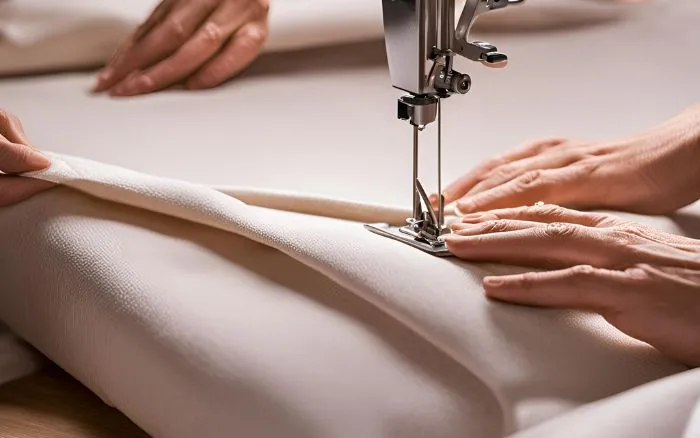Choosing the Best Soft Mattresses for Recovery

Introduction
Soft mattresses are known for their plush and cushiony feel, offering a comforting embrace that can enhance recovery during sleep. For individuals seeking optimal rest and recuperation, soft mattresses provide a supportive foundation that eases pressure points and promotes a restful sleep experience. In this comprehensive guide, we delve into the various aspects of soft mattresses and their role in facilitating recovery, particularly when paired with adjustable beds.
Understanding Soft Mattresses for Recovery
What are Soft Mattresses?
Soft mattresses are engineered to cater to those who seek a luxuriously plush sleeping experience. Crafted with precision, these mattresses boast a delicate balance between support and cloud-like softness. At their core lies a combination of high-quality materials meticulously chosen to offer optimal comfort and relaxation.
Memory foam, renowned for its contouring properties, is a popular choice in the construction of soft mattresses. This viscoelastic material responds to body heat and pressure, molding itself to the sleeper’s curves, thereby cradling them in sublime comfort. The result is a sensation akin to being enveloped in a gentle embrace, as the mattress conforms to every contour, alleviating pressure points and promoting uninterrupted sleep.
Latex, another common material found in soft mattresses, offers a natural alternative with similar benefits. Derived from the sap of rubber trees, latex mattresses provide a responsive yet yielding surface that gently supports the body while ensuring proper spinal alignment. The inherent resilience of latex prevents sinking, offering a buoyant sensation that relieves tension and promotes deep relaxation.
Hybrid constructions combine the best of both worlds, blending memory foam, latex, or other cushioning materials with traditional innerspring coils. This innovative design delivers the plushness of foam or latex layers while maintaining the sturdy support of coils. By strategically layering materials, hybrid mattresses offer a customizable sleep surface that adapts to individual preferences, ensuring a restful night’s sleep for every sleeper.
The softness of these mattresses not only cradles the body but also facilitates airflow, allowing for enhanced breathability and temperature regulation. This feature prevents overheating, ensuring a cool and comfortable sleep environment throughout the night.
In essence, soft mattresses are more than just a place to rest; they are a sanctuary of comfort and relaxation, where the stresses of the day melt away, and rejuvenating sleep awaits. Whether you prefer the sink-in sensation of memory foam, the buoyancy of latex, or the versatility of hybrid designs, soft mattresses offer a blissful retreat for weary bodies and restless minds.
Recovery and Sleep Quality
Sleep quality plays a pivotal role in the recovery process, and the choice of mattress firmness is a key factor in optimizing this relationship. By delving into the specifics of how sleep quality affects recovery, we can gain a deeper understanding of its significance. Soft mattresses, in particular, have a profound impact on promoting a restorative sleep environment, thereby enhancing the body’s recovery process. This section delves into the intricate details of how sleep quality, especially when facilitated by soft mattresses, contributes to effective recovery.
- Enhanced Relaxation: Soft mattresses facilitate deeper relaxation by conforming to the body’s natural curves, reducing tension, and promoting a sense of comfort and ease.
- Pressure Point Relief: The plush surface of soft mattresses effectively diminishes pressure points, allowing for improved blood circulation and the alleviation of discomfort, vital for the body’s recovery process.
- Muscle Repair and Blood Circulation: By evenly distributing body weight, soft mattresses promote optimal blood circulation, thus facilitating muscle repair and recovery during sleep.
The importance of sleep quality in the recovery process cannot be overstated. During sleep, the body undergoes a myriad of physiological processes crucial for healing and regeneration. Soft mattresses play a crucial role in fostering an environment conducive to these processes. By cradling the body in gentle support, these mattresses promote a state of deep relaxation essential for effective recovery.
Moreover, the pressure-relieving properties of soft mattresses are instrumental in alleviating discomfort and allowing muscles to repair and rejuvenate. As pressure points are minimized, blood circulation is optimized, ensuring that vital nutrients and oxygen reach the muscles, aiding in their repair and recovery. This enhanced circulation also facilitates the removal of metabolic waste products, further promoting healing and renewal throughout the body.
In addition to physical recovery, the quality of sleep facilitated by soft mattresses is equally essential for cognitive and emotional well-being. Adequate, restorative sleep is linked to improved mood regulation, cognitive function, and overall mental health. By enveloping sleepers in a cocoon of comfort, soft mattresses encourage uninterrupted sleep cycles, allowing the mind to unwind and recharge fully.
In essence, the impact of soft mattresses on sleep quality extends far beyond mere comfort. They are integral to creating an optimal sleep environment that supports the body’s natural healing processes, fosters physical recovery, and promotes overall well-being. As we prioritize the importance of sleep in our daily lives, investing in a high-quality, soft mattress becomes not only a choice for comfort but also a proactive step towards enhancing our health and vitality.
Choosing the Best Soft Mattress for Recovery
When it comes to selecting the best soft mattress for recovery, there are several crucial factors to consider. Understanding the material composition, support levels, and sleep preferences is essential in making an informed decision.
- Memory foam mattresses are renowned for their exceptional contouring support, which molds to the body’s shape and provides excellent pressure relief.
- They are ideal for individuals seeking relief from aches and pains, as the material alleviates pressure points and promotes comfortable sleep.
- The viscoelastic properties of memory foam respond to body heat and weight, creating a customized sleeping surface that enhances overall sleep quality.
- Latex mattresses are known for their responsive and buoyant feel, offering a unique balance of support and comfort.
- They are particularly beneficial for those who prioritize proper spinal alignment and require relief from discomfort.
- The natural elasticity of latex provides a resilient sleeping surface that adapts to individual sleep preferences, ensuring a restful and rejuvenating experience.
- Hybrid mattresses combine the strengths of memory foam and latex, delivering a versatile solution to accommodate diverse sleep needs and recovery requirements.
- By integrating the contouring support of memory foam with the responsive feel of latex, hybrid mattresses offer a harmonious balance between comfort and support.
- With enhanced breathability and temperature regulation, hybrid mattresses contribute to a conducive sleeping environment, promoting optimal recovery and quality rest.
Conclusion
Soft mattresses, when utilized in conjunction with adjustable beds, play a pivotal role in enhancing recovery and promoting restorative sleep. The comfort, pressure relief, and supportive attributes of soft mattresses contribute significantly to the overall well-being of individuals seeking a rejuvenating slumber. By prioritizing sleep quality and recovery, the utilization of soft mattresses is a valuable investment in one’s physical and mental health.




